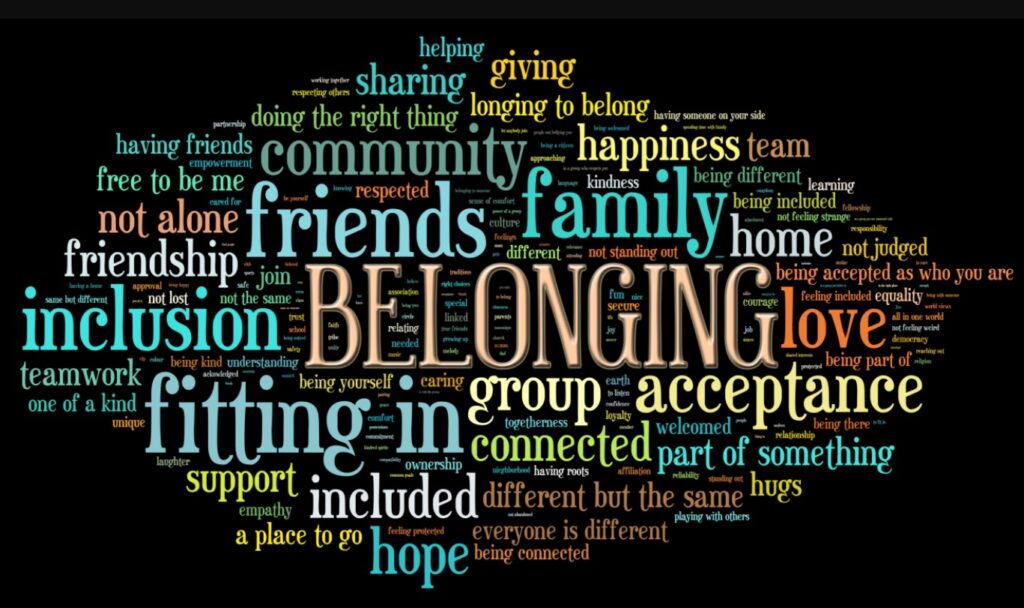
Introduction
If you are seeking to build customer loyalty, it is important to understand that belonging is not just a feeling. It is an instinctive need that humans crave from a very young age. In fact, belonging is one of our most base psychological needs.
According to Tajfel’s (1979) social identity theory, humans are hard-wired to form tribal groups through which they can feel they are part of something greater than themselves. When brands make their customers feel like they belong on their team (or in their tribe), they open up new opportunities for building lasting loyalty and increasing lifetime value.
People love to belong
People want to belong. They want to feel like they are part of a group, that they are part of something important, powerful and successful.
There are many reasons why people love brands: for the quality of their products or services, because the brand is aspirational, or because their values align with those expressed by the brand. But one reason stands out from all others: people love brands because they make them feel like they belong.
We’re all subject to social identity theory
You may not realise it, but you are subject to social identity theory. In short, this theory states that humans tend to boost their self-esteem based on the social groups they belong to.
In his paper “The Social Identity Theory of Intergroup Behavior,” social psychologist Henri Tajfel describes how this works:
“…the individual’s self-concept is not only a function of personal characteristics but also of membership in various groups (e.g., gender, race, religion) and other social categories.”
“Thus, an individual’s self-concept depends on the extent to which he considers himself as belonging or not belonging to different categories.”
Social identity helps us establish a sense of belonging in the larger world
The human need to be part of a group, or social identity, is something that we are born with and reinforced throughout our lives. As social animals, humans find it necessary to belong to one or more groups and derive meaning from those respective memberships.
Groups can be defined by an individual’s membership in certain categories such as race or gender, however researchers have found that people tend to identify themselves primarily based on their membership in one major group: their reference group (also known as one’s ingroup).
For example, if you were born into a family that supports the Democratic Party or lives near New York City where most people support the Yankees baseball team then there is usually no need for you identify yourself as part of another group because it is already obvious where your loyalties lie.
This means when you go outside this area and meet someone new who asks which political party do you support? Or which sports team do you cheer for?, they may think they’re getting at some deep truth about who YOU really are but really all they’re doing is asking where YOU fit into THEIR reference group vs YOUR reference group.
Belonging is one of the most basic psychological needs people have
People have a basic need to feel like they belong somewhere. Belonging is one of the most important psychological needs people have and ranks right up there with our basic survival needs (food, water, sleep).
Belonging is so fundamental and important that social scientist John Cacioppo describes it as one of three core psychological needs—alongside autonomy and relatedness. People who don’t feel like they belong often experience depression or anxiety.
Acknowledge your best customers as members of your tribe
Acknowledge your best customers as members of your tribe to build loyalty. Make them feel appreciated and part of something special. Recognise and reward them.
Utilise status tiers to magnify the sense of belonging. Provide them with access to exclusive products and services, invite them to meaningful events, utilise personalisation to demonstrate you understanding them as individuals.
Providing customers with a sense of belonging is the single most powerful way to generate long-term loyalty to a brand.
If a company offers a sense of belonging, workers are more likely to build loyalty toward that brand
When you are at your workplace, do you feel a sense of belonging?
Research shows that people who feel like they belong in their workplace tend to be more engaged in their jobs and loyal to their employers than those who do not feel like they belong.
This can be especially true for millennials, for whom belonging is even more important than money or status when deciding where to work—and why companies looking to attract top talent should consider how making them feel connected will help retain them over time as well.

